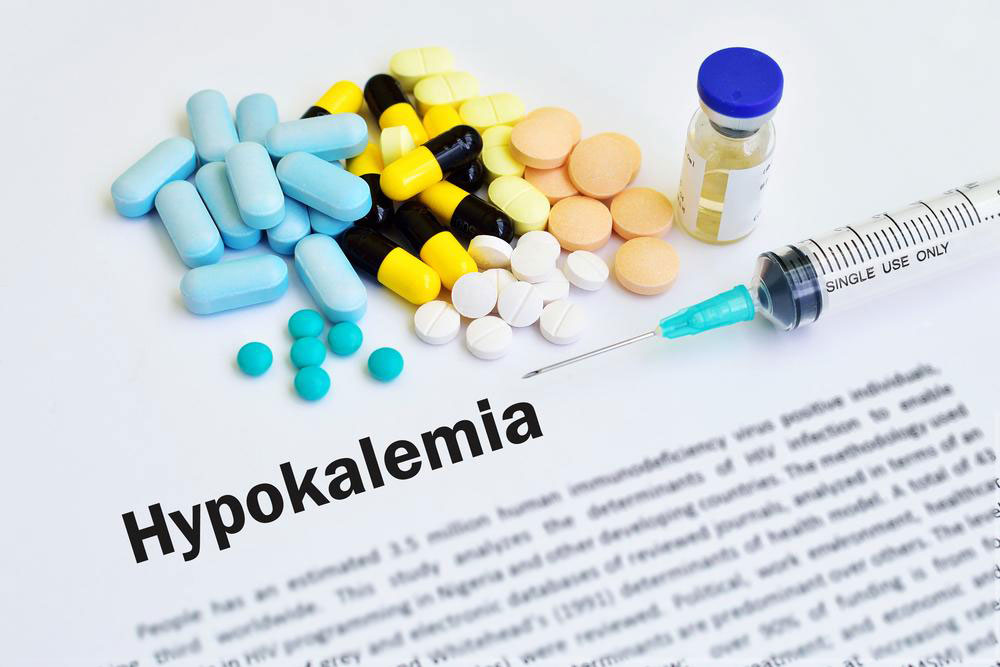Comprehensive Guide to Hypokalemia: Causes, Symptoms, and Effective Treatments
Explore an in-depth overview of hypokalemia, focusing on its causes, symptoms, and proven treatment options. Learn how maintaining proper potassium levels through diet, medication, and lifestyle adjustments can prevent serious health issues. This comprehensive guide is essential for individuals at risk or experiencing symptoms related to low potassium, emphasizing the importance of early diagnosis and professional medical supervision to ensure effective management and overall health maintenance.

Hypokalemia is a medical condition characterized by an abnormally low level of potassium in the bloodstream. The normal serum potassium concentration ranges between 3.5 and 5.0 milliequivalents per liter (mEq/l). Maintaining appropriate potassium levels is vital for numerous physiological processes within the body. The body requires approximately 70 to 100 mEq of potassium daily to support essential functions, including nerve signal transmission, muscle contractions, and maintaining cardiac rhythm. The kidneys play a crucial role in regulating potassium balance by filtering excess potassium from the blood and excreting it through urine. When this delicate balance is disturbed, it can lead to a host of health issues that require prompt attention.
Potassium is an indispensable electrolyte involved in critical bodily functions. It helps generate nerve impulses that facilitate communication between the brain and body tissues. It also regulates muscle contractions, including those of the heart muscle, ensuring regular and effective heartbeat rhythm. Moreover, potassium is necessary for maintaining normal blood pressure levels, supporting cellular function, and assisting in the metabolic processes that sustain overall health.
Symptoms associated with hypokalemia can vary from mild to severe, depending on the extent of the potassium deficiency. Common signs include muscle weakness, fatigue, cramps, and twitching caused by disrupted muscle contractions. Patients may experience irregular heartbeats or palpitations, which can sometimes escalate to more severe cardiac complications if left untreated. Other symptoms may encompass high blood pressure, constipation, and issues related to kidney function. Recognizing these symptoms early is crucial for initiating appropriate treatment and preventing serious health risks.
The root causes of hypokalemia are diverse and often involve factors such as medication use, lifestyle choices, and underlying health conditions. Certain medications, especially diuretics (used for treating high blood pressure and edema), laxatives, and corticosteroids, can increase potassium excretion or hinder its absorption. Excessive sweating due to intense physical activity or hot climates results in the loss of potassium through sweat. Inadequate dietary intake of potassium-rich foods may also contribute, particularly in populations with poor nutrition or restrictive diets. Additionally, conditions like vomiting, diarrhea, kidney disorders (such as renal tubular acidosis or hyperaldosteronism), and metabolic alkalosis can disturb potassium balance, leading to hypokalemia.
Managing hypokalemia involves identifying and addressing the underlying cause along with restoring potassium levels to normal. Treatment strategies typically include dietary modifications, supplementation, and, in some cases, intravenous potassium administration, especially in severe cases. However, such interventions should always be supervised by healthcare professionals to avoid complications like hyperkalemia, which is an excess of potassium in the blood.
The cornerstone of preventing hypokalemia is ensuring sufficient dietary intake of potassium. Foods naturally rich in potassium include bananas, oranges, grapefruit, tomatoes, spinach, potatoes, beans, peas, avocados, and fish such as salmon and tuna. Incorporating these foods into daily meals can significantly help in maintaining electrolyte balance. For individuals with specific health conditions or those on certain medications, healthcare providers may recommend potassium supplements—either in tablet or liquid form—to compensate for losses.
In addition to dietary measures, regular monitoring of blood potassium levels is critical for individuals at risk, such as those with kidney disease or heart conditions. Blood tests can help detect imbalances early, allowing for timely management. Lifestyle modifications, including avoiding excessive sweating and staying hydrated, are also beneficial for maintaining potassium levels, especially in athletes or people living in hot climates.
In cases where hypokalemia is caused by medication, healthcare providers may adjust dosages or prescribe alternative treatments. It's important not to self-medicate or attempt to correct potassium imbalances without medical guidance, as improper supplementation can lead to dangerous complications. Comprehensive management often involves a multidisciplinary approach, including dietitians, nephrologists, and cardiologists, to ensure safe and effective treatment.
To sum up, hypokalemia is a manageable condition when properly diagnosed and treated. It underscores the importance of a balanced diet rich in potassium and close medical supervision. Awareness of the symptoms and understanding the causes can facilitate early intervention, reducing the risk of serious complications like cardiac arrhythmias. Maintaining healthy potassium levels supports overall well-being and proper physiological functioning, making it a vital component of health management strategies.





